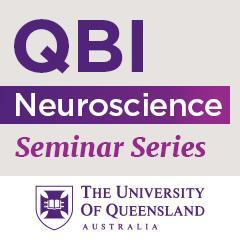
PhD Student Seminars:
1. Tessa Onraet (Zuryn Lab)
2. Abigail Shaughnessy (Marshall Lab)
Title of first talk: Clearing The Clutter: A New Paradigm of Mitochondrial Quality Control in Neuronal Axons
Tessa Onraet1, Anne Hahn1, Massimo Hilliard1, Steven Zuryn1
1Clem Jones Centre for Ageing Dementia Research, Queensland Brain Institute, The University of Queensland
Neurons rely on a highly efficient mitochondrial network to sustain their energy-intensive functions across a vast cellular architecture. Chronic mitochondrial dysfunction is a hallmark of neurodegenerative diseases such as Parkinson’s, Alzheimer’s, and Huntington’s diseases, yet the mechanisms by which neurons maintain mitochondrial quality across their uniquely polarized morphology remain incompletely understood. To investigate axonal mitochondrial quality control, we induced mitochondrial DNA (mtDNA) damage in Caenorhabditis elegans neurons by targeting the restriction endonuclease PstI to the mitochondrial matrix, generating mtDNA double strand breaks. Using fluorescent labelling of neuronal subtypes and their mitochondria, we uncovered a striking phenomenon: damaged mitochondria were selectively packaged into vesicle-like structures, termed “mitophers,” which budded from the distal axonal region. We found that this process occurs naturally during ageing but is markedly accelerated and enhanced under mitochondrial stress. Through targeted genetic screens, we identified a suite of molecular regulators orchestrating mitopher formation and trafficking and revealed a novel pathway for eliminating dysfunctional mitochondria in the distal axon where spatial constraints represent a challenge to conventional quality control mechanisms. By elucidating the molecular underpinnings of mitopher formation, we provide new insights into neuronal resilience and mitochondrial homeostasis, offering a foundation for therapeutic strategies aimed at preserving neuronal integrity in the face of mitochondrial dysfunction.
Title of second talk: Colour vision plasticity and behaviour of coral reef fishes in response to short-term changes to the light environment
Phenotypic flexibility may enable coral reef fish to adjust their visual capabilities rapidly across continuous fluctuating light environments seen on coral reefs such as seasons, depth, human-induced sediment suspension and algal blooms. However, factors that determine the extent of phenotypic flexibility, how transitions from one phenotype to another occur, and whether changes in gene expression translate to visual performance remain unclear. In this study, we examined the capacity of the Ocellaris clownfish (Amphiprion ocellaris) visual system to adapt to short-term changes in the light environment. We exposed adult fish to three light environments for ten days (UV-rich, UV-deficient and green) that reflect ecologically relevant stressors on the Great Barrier Reef, such as enhanced sediment runoff and algal blooms. RNA-seq and enzymatic methyl-sequencing offered the first insight into how genetic and epigenetic mechanisms can regulate the gene expression of vital visual genes [e.g. cone opsins: sws1 (UV-sensitive) and sws2b (violet-sensitive)]. Histological analysis showed how molecular shifts result in plasticity in photoreceptor morphology (i.e. outer segment length), enabling rapid changes in visual function. Lastly, behavioural experiments determined that changes seen at a molecular level altered the threshold at which two colours can be distinguished, where fish could discriminate green-coloured targets better in a green algal-simulated light environment. Our study provides the first comprehensive evidence to show the benefits of flexible visual systems in animals – from opsin gene expression to behavioural visual function. It also provides critical insights into mechanisms of rapid sensory adaptation, which may help alleviate the effects of environmental change.
About Neuroscience Seminars
Neuroscience seminars at the QBI play a major role in the advancement of neuroscience in the Asia-Pacific region. The primary goal of these seminars is to promote excellence in neuroscience through the exchange of ideas, establishing new collaborations and augmenting partnerships already in place.
Seminars in the QBI Auditorium on Level 7 are held on Wednesdays at 12-1pm, which are sometimes simulcast on Zoom (with approval from the speaker). We also occassionally hold seminars from international speakers via Zoom. The days and times of these seminars will vary depending on the time zone of the speaker. Please see each seminar listed below for details.



